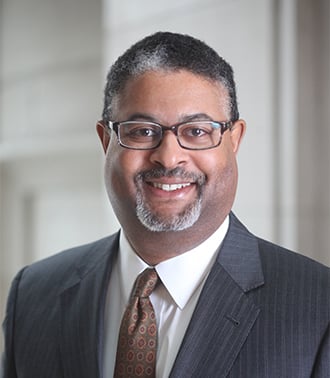Get the Money, DON’T Run: Assistant Attorney General Urges “Problem Solver” Approach to Enforcement; Fleshes Out Pilot Program Encouraging Corporations to Claw-back Compensation and to Tie Compensation to Compliance
The final day of the ABA White Collar Crime Conference featured some forceful remarks from Assistant Attorney General Kenneth A. Polite in which he highlighted DOJ’s global assumed role as a “community problem solver.” Polite stressed DOJ’s efforts to “span the globe” and “broaden [its] sense of community” in order to combat crime. Polite noted that crime knows no borders and made plain that DOJ’s efforts to combat crime “must be equally boundless.” Polite highlighted DOJ’s coordination with agencies and governments across the world to bring “righteous” cases and specifically noted efforts to enforce the rules of the U.S. financial system on all actors who seek to access, or who provide access to, the U.S. system, especially those subject to U.S. sanctions.
Polite also delivered on the tease that Deputy Attorney General Lisa Monaco made yesterday down here in Miami, providing more detail on DOJ’s first-ever Pilot Program on Compensation Incentives and Claw-backs (the Pilot Program). Polite couched the program as fitting within DOJ’s community problem solving approach, which requires more than prosecuting crime when it happens, but also preventing it from occurring in the first place. The Pilot Program is designed to encourage corporations to incentivize compliance by tying compliance with individual compensation benchmarks (both for executives and employees) and encouraging corporations to claw-back money from culpable executives and employees. The Pilot Program has two components:
- Going forward, every corporate resolution involving the Criminal Division will require the corporation to develop a compensation and bonus system tied to compliance-promoting criteria; and
- The Criminal Division will reduce fines to companies that seek to claw-back compensation from corporate wrongdoers. Corporations will be required to pay the applicable fine at the beginning of a criminal resolution minus a credit equal to the amount of compensation the company is attempting to claw-back from culpable executives and wrongdoers. If the company successfully claws back the money, the company gets to keep it. If it is unsuccessful, it still is eligible for a fine reduction of up to 25 percent of the money the company tried to retrieve.
Polite emphasized that DOJ recognizes the costs and burdens involved in attempting to claw-back compensation, and that the program is not designed to foster corporate waste. He urged companies to make a case-by-case assessment of the cost to shareholders in pursuing the claw-back, including the cost of litigation, and weigh it against the value of the recoupment. The program will be in effect for three years, during which DOJ will assess its impact. Employment lawyers no doubt breathed a sigh of relief with Polite’s caveat about the need to evaluate the viability of claw backs on a case-by-case basis. How the new claw-back effort will jive with local employment law—especially in jurisdictions with strong employee protections—will be something we all will be watching in the coming months and years.
Polite also announced changes to DOJ’s Corporate Criminal Enforcement Policy designed to enshrine what has been the practice of the Criminal Division over the last few years. Under the changes, DOJ will consider how a company’s compliance policies address the use of personal mobile devices and the use of social media platforms, including those that allow for ephemeral messaging. DOJ will expect that the use of personal mobile devices and ephemeral messaging applications will be tailored to the risk profile of the company, the company’s business needs, and the need to preserve company documents and communications. DOJ also will focus on how the company’s compliance policies regarding these areas is communicated to company employees. Further, during an investigation, if a company fails to produce documents from third party platforms facilitating ephemeral messaging, DOJ will ask questions about the company’s preservation of such messages. Polite observed that the company’s answers, or lack of answers, may impact the offer it receives from DOJ to resolve its criminal liability.
This concludes our live coverage of the 38th Annual ABA White Collar Crime Conference. Thanks for joining us virtually from sunny Miami! We’ll continue to track and dissect the latest developments in government enforcement and provide timely news and insights accessible to lawyers and non-lawyers alike, so make sure to continue following Enforcement Edge!
© Arnold & Porter Kaye Scholer LLP 2023 All Rights Reserved. This blog post is intended to be a general summary of the law and does not constitute legal advice. You should consult with counsel to determine applicable legal requirements in a specific fact situation.


